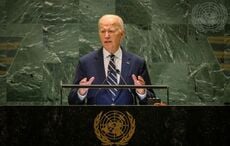US Open champion Rory McIlroy has explained how a life changing visit to Haiti shaped the biggest victory of his life.
McIlroy is well used to playing in front of thousands of spectators but nothing prepared him for the view at a Haiti golf course days before he teed it up at the US Open.
The Northern Ireland youngster got a whole new perspective on life after his fact-finding mission to the hurricane-ravaged nation in his new role as a Unicef ambassador.
McIlroy says the experience helped him for the better when he went to Congressional for the US Open and might have made a difference pre-Augusta.
“I think it had a huge perspective on how I handled myself throughout the tournament last week because it gave me a huge dose of perspective on everything, not just golf but life in general,” said McIlroy.
“There was a nine hole golf course in Port Au Prince and there were 50,000 people living on that course, 50,000 people.
“The night we stayed in Haiti there was a tropical depression and 25 people were killed that night in the floods.
“We drove past the Presidential palace one day and the dome at the top of it was hanging off. They cannot even repair that.
“The conditions people are living in there are terrible. If I can go and see that then it is good for me and it is also good to raise awareness for what is going on out there.”
McIlroy knows the pictures still in his mind from Haiti will stay with him for the rest of his life and they will help him cope with the demands and pressures on a new Major champion.
“I didn’t consciously go there before the US Open as preparation but had I gone there the week before Augusta then the Masters could have been a lot different,” he added.
“It did have a huge impact on my mentality at Congressional. When you land in America after a couple of days in Haiti, you notice how smooth the roads are.
“You notice that they have streetlights, that you can drink a bottle of water. You realise how lucky you are with the life you live and doing what you want to do.
“There are six million people in Haiti who don’t have that kind of opportunity.”




Comments